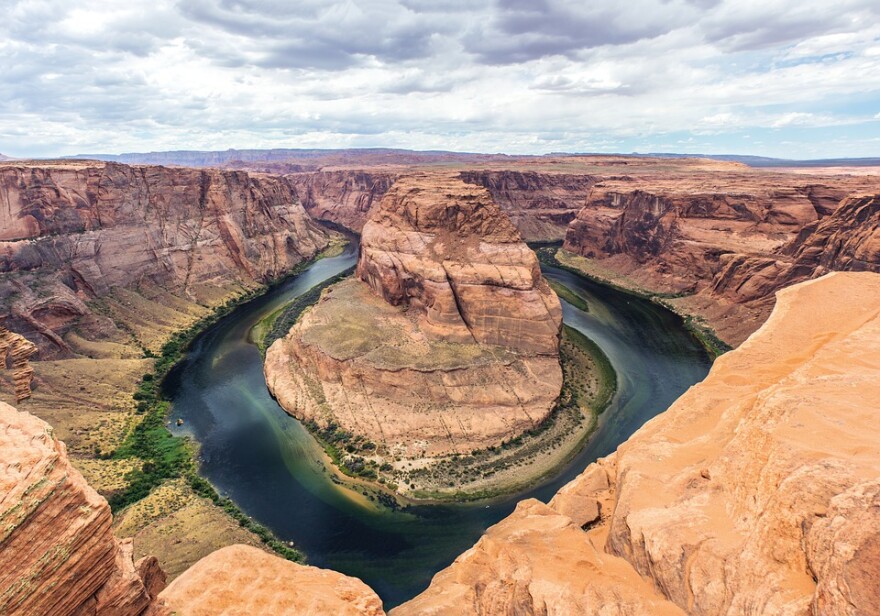In 1937, a man named Buzz Holmstrom built a wooden boat and ran the whitewater rapids of the entire Colorado River system completely solo. The following year, he became the subject of a documentary film that brought him national fame as the expert boatman who had supposedly “conquered the Colorado.” But Holmstrom always said that the rivers he ran in Utah have “never been conquered and never will.”
The man who documented Holmstrom’s river running feats for the 1938 film was photographer Amos Burg. Burg needed his own boat for filming so commissioned a rubber raft from Goodrich Tire Company that he affectionately named “Charlie.” It was the first of its design, and Burg often boasted the raft could “float on a dewdrop.” Charlie weighed about 80 lbs but could carry over 5,000 pounds of film equipment in its water-proof containers. Charlie was the first rubber raft used in the Mountain West and marked a shift in the way river craft were designed across Utah.
Holmstrom and Burg’s thousand-mile journey began in Green River, Wyoming and ended at Hoover Dam in Nevada. The trip took months, and during a pitstop in Utah one fan gave them a pet raccoon to provide “hours of entertainment.” On Lake Mead, Holmstrom rowed for four days so he could symbolically bump the tip of his wooden boat against the Hoover Dam’s wall, signaling the completion of his so-called “conquest.”
Despite this amazing adventure and the fame that came with it, Holmstrom received no financial gain from the film. He regarded Utah’s rivers with a sense of reverence and awe, not resources to be dominated and controlled. In one of his journals, Holmstrom wrote “I think this river is not treacherous as has been said. Every rapid speaks plainly just what it is and what it will do… Some people have said I 'conquered the Colorado River’ – I don’t say so. It has never been conquered and never will I think. Anyone who it allows to go through its canyons and see its wonders should feel thankful and privileged.”
The Beehive Archive is a project of Utah Humanities, produced in partnership with Utah Public Radio and KCPW Radio with funding from the Lawrence T. and Janet T. Dee Foundation. Find sources and past episodes at Utah Stories from the Beehive Archive.


